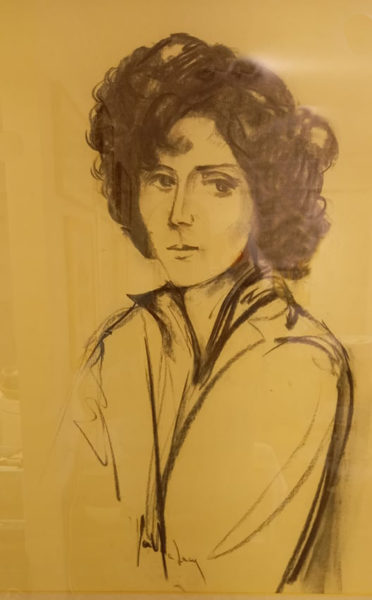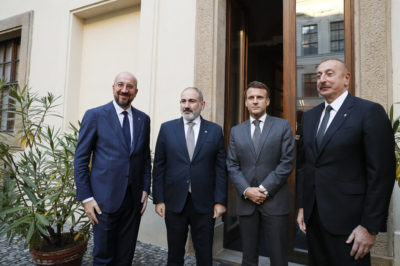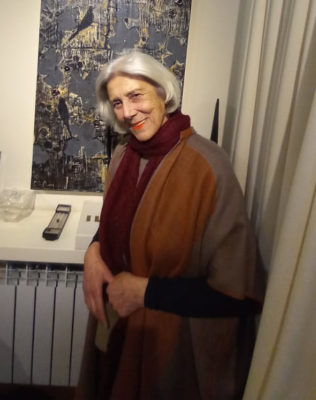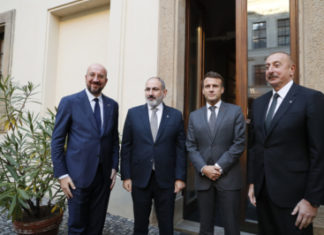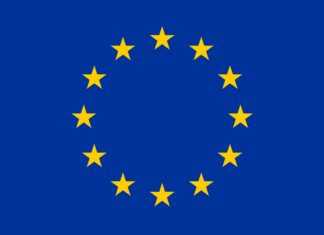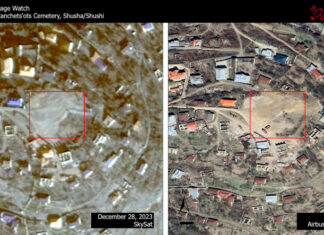YEREVAN — Lucy Topalian is one of most positive and charismatic persons I have ever met. This grey-haired, tall, active Lebanese-Armenian lived in Kuwait for 40 years, where she owned a gallery, and for more than two years has resided in Armenia. Our conversation took place in her cozy apartment in Yerevan, where she lives with her dog Pasha and cats Minu and Noushig.
Dear Lucy, where are your roots from?
The Topalians were from Adıyaman, my mother’s family – from Malatya. In 1915, they were exiled first to Aleppo, then to Lebanon. My paternal grandfather, who was a farmer in Adıyaman, was burned with others in the church by Turks before my father was born. My mother’s father was a carpet trader and had a wool dye factory. He was forced to serve in Ottoman army, after he escaped and became a soldier of Andranik Pasha. Afterwards along with his three friends he entered the French Foreign Legion.
You have done different things in life. What do you consider to have been your profession?
I have done everything I loved or dreamed of doing. When I went to college in Beirut, I studied education and child psychology to become a teacher. I was also very good at gymnastics, I went to Denmark for a year, where I studied sports leadership. I started to work as sport teacher in Armenian and British high schools and a university in Beirut. I left the country in 1976 because of Lebanese civil war, and I was invited to Kuwait. I thought I would go there for three weeks, but I stayed 42 years. Since I know four languages, I started to work as an office manager in a financial company. From then on, I worked in a computer company, starting from a junior sales woman and ending to a deputy managing director. Finally, the Internet came, my employees, who were barely 22-30 years old, every day came to me for consultation, so I started to learn about the Internet. But as I had no training, everything was self-taught, I was unable to keep up with them, so I decided to finish with this job. On the other hand, I loved art, I followed the artists, so I started to run a gallery. And because in Kuwait there were hardly any galleries or anything, I used to do exhibitions in my own house or in my courtyard. They were taking place once every month or later. Finally, the art consultants heard about me, so they would come with their artists or suggest me to cooperate in their projects, letting me follow them up or finish them. I developed the idea of business behind the art. So it was a very nice combination, in the last 20 years in Kuwait I made something that I dreamt of and I made money with it, so what else do you want better than this? (laughing). I have an eye for contemporary art, so I developed that, because all the rest was much more classical. When the contemporary art exhibitions started, it really interested lots of people, and I met very good collectors. I was started contacted from the British Museum, Los Angeles County Museum and from private collectors from Dubai, London, Iran.
My own gallery, named “Dar al Founoun,” which means “The House of Art,” has hosted exhibitions from all around the world. I hosted four or five exhibitions from Armenia, as well as many artists from South Korea, Japan, Europe, USA and South America. Thanks to the support of “Ejee Art Consultancy” of London, I had the most recognized Arab artists in my small gallery.
